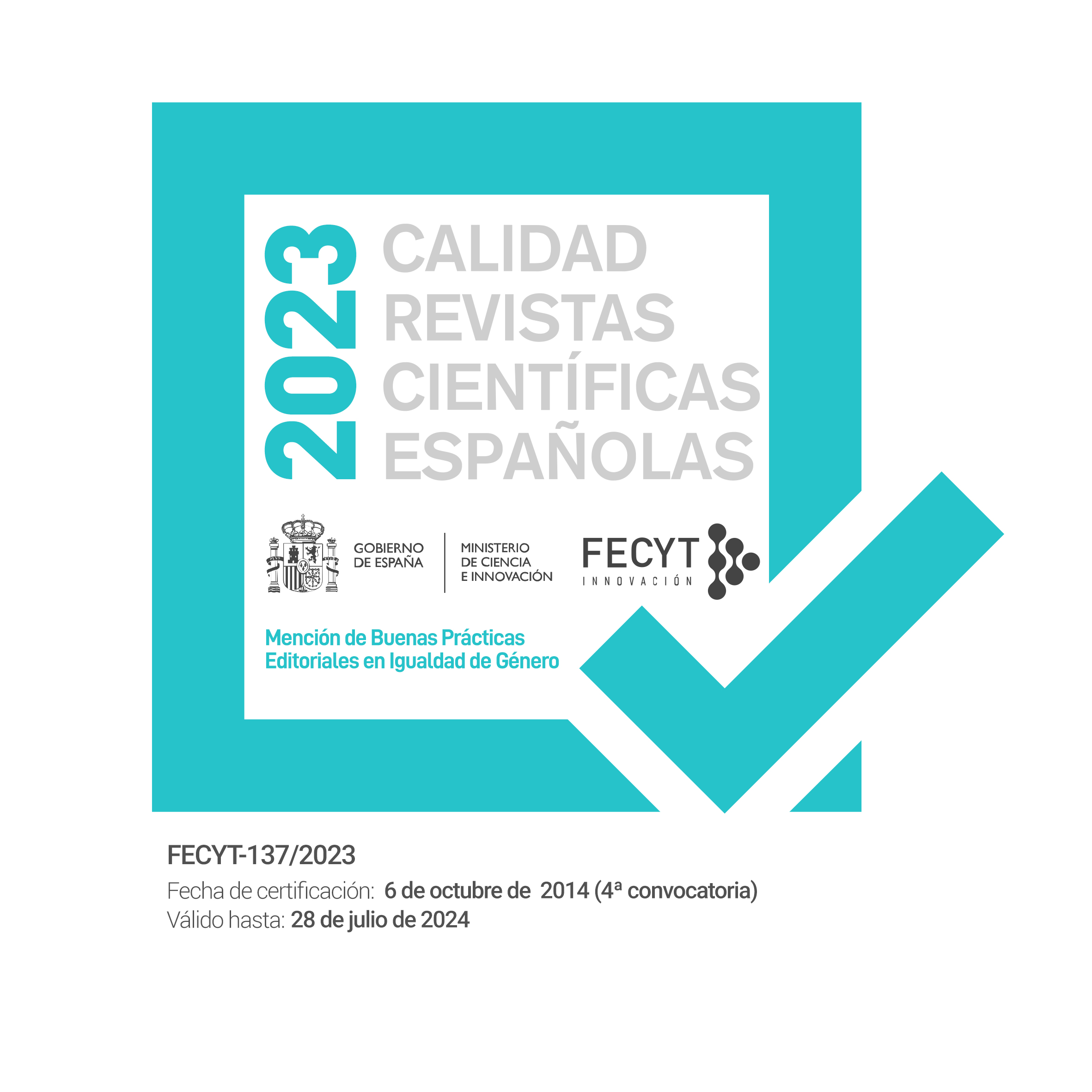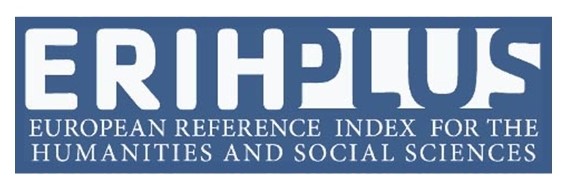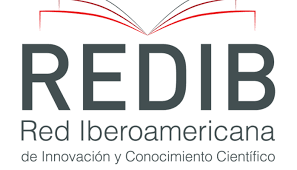Identidad, espectáculo y representación: las candidaturas de Israel en el Festival de la Canción de Eurovisión
DOI:
https://doi.org/10.31921/doxacom.n27a6Palabras clave:
Eurovisión, Israel, nacionalidad, anfitrión, espectáculoResumen
A partir de una sofisticada inversión, capital y simbólica, el Festival de Eurovisión genera anualmente un espectáculo audiovisual en la televisión pública problematizando conceptos como “comunidad”, “Europeidad” e “identidad cultural”. Siguiendo las investigaciones recientes en el ámbito anglosajón, recorreremos sus distintas ediciones hallando las paradojas inherentes a la imagen en movimiento en el diálogo entre “canción” y “nación” con la participación de países “en los márgenes” de Europa, cuyo triunfo –puesto que el país vencedor ha de ser el organizador al año siguiente– ha descentrado la sede anfitriona y la “marca Eurovisión”. Nos centraremos en las candidaturas de Israel (1973-2018) para debatir, por tanto, cómo esta nación es representada en dicho mega-evento a través de la canción.
Descargas
Citas
Akin, A. (2013): “The Reality is Not as It Seems from Turkey. Imaginations about the Eurovision Song Contest from Its Production Fields”, International Journal of Communication, n. 7, pp. 2303-2321.
Anderson, B. ([1983] 2006): Comunidades imaginadas. Reflexiones sobre el origen y la difusión del nacionalismo. Traducción de Eduardo L. Suárez. México D. F.: Fondo de Cultura Económica.
Arntsen, H. (2005): “Staging the nation? Nation, myth and cultural stereotypes in the international Eurovision Song Contest finals in Estonia, Latvia and Norway”, en Baerug, R. (ed.), Baltic Media World. Riga: Flera Printing-House.
Baker, C. (2015): “Gender and Geopolitics in the Eurovision Song Contest”, Contemporary Southeastern Europe, n. 2 (1), pp. 74-93.
Baker, C. (2017): “The ‘gay Olympics’? The Eurovision Song Contest and the politics of LGBT/European belonging”, European Journal of International Relations, n. 23 (1), pp. 97-121.
Bauman, Z. (2005): Identidad. Traducción de Daniel Sarasola. Buenos Aires: Losada.
Belkind, N. (2010): “A Message for Peace or a Tool for Oppression? Israeli Jewish-Arab duo Achinoam Nini and Mira Awad's Representation of Israel at Eurovision 2009”, Current Musicology, n. 89, pp. 7-35.
Björnberg, A. (2007). “Return to Ethnicity: The Cultural Significance of Musical Change in the Eurovision Song Contest”, en Raykoff, I. y Tobin, R. D. (eds.): A Song for Europe. Popular Music and Politics in the Eurovision Song Contest. Aldershot: Ashgate, pp. 13-24.
Björnberg, A. (2013): “Invincible heroes. The Musical Construction of National and European Identities in Swedish Eurovision Song Contest Entries”, en Tragaki, D. (ed.): Empire of song. Europe and Nation in the Eurovision Song Contest. Plymouth: Scarecrow Press, pp. 203-220.
Bohlman, A. F. y Polychronakis, I. (2013): “Eurovision Everywhere: A Kaleidoscopic Vision of the Grand Prix”, en Tragaki, D. (ed.): Empire of song. Europe and Nation in the Eurovision Song Contest. Plymouth: Scarecrow Press, pp. 57-78.
Bohlman, A. F., Polychronakis, I. y Rehding, A. (2013): “Doing the European Two-Step”, en Tragaki, D. (ed.): Empire of song. Europe and Nation in the Eurovision Song Contest. Plymouth: Scarecrow Press, pp. 281-298.
Bohlman, P. V. (2013): “Tempus Edax Rerum. Time and the Making of the Eurovision Song”, en Tragaki, D. (ed.): Empire of song. Europe and Nation in the Eurovision Song Contest. Plymouth: Scarecrow Press, pp. 35-56.
Dayan, D. y Katz, E. (1992): Media Events. The Live Broadcasting of History. Londres: Harvard University Press.
Derrida, J. (1997): Mal de archivo. Una impresión freudiana. Madrid: Trotta.
European Broadcasting Union (2014): “EBU insists Israeli lawmakers protect public broadcasting as they dismantle IBA”, 5 de mayo. Disponible en: https://www.ebu.ch/contents/news/2014/05/ebu-insists-israeli-lawmakers-pr.html [consultado el 22/06/2018]
The Eurovision Song Contest (1999). Israel: Unión Europea de Radiodifusión (EBU) y Autoridad de Radiodifusión de Israel (IBA), 186’.
Eurovision.tv (2015): Eurovision Milestones: 1965. Disponible en: https://www.youtube.com/watch?v=MS21wnWTgJo [consultado el 22/06/2018]
Eurovision.tv (2017a): “Jerusalem 1979”. Disponible en: https://eurovision.tv/event/jerusalem-1979 [consultado el 22/06/2018]
Eurovision.tv (2017b): “The Hague 1980”. Disponible en: https://eurovision.tv/event/the-hague-1980 [consultado el 22/06/2018]
Eurovision.tv (2017c): “Israel calling: Participants go sightseeing in Jerusalem”. Disponible en: https://www.youtube.com/watch?v=Thx_7pACMf4 [consultado el 22/06/2018]
Esckaz.com (2015): “Esckaz in Vienna: Press conference from Nadav Guedj (Israel)”. Disponible en: https://www.youtube.com/watch?v=MqC1Y2FpOVs&t=1s [consultado el 22/06/2018]
Fenn, D. et al. (2005): “How does Europe make its mind up? Connections, cliques, and compatibility between countries in the Eurovision Song Contest”, Physica A: Statistical Mechanics and its Applications, n. 360 (2), pp. 576-598.
Fuster, L. (2016): “Hovi Star on Moscow Airport Incident: “It wasn’t a nice experience”, en Wiwibloggs, 23 de abril. Disponible en: https://wiwibloggs.com/2016/04/23/hovi-star-comments-moscow-airport-incident-wasnt-nice-experience/138478/ [consultado el 22/06/2018]
Fricker, K. y Gluhovic, M. (2013): “Introduction: Eurovision and the ‘New’ Europe”, en en Fricker, K. y Gluhovic, M. (eds.): Performing the 'New' Europe: Identities, Feelings and Politics in the Eurovision Song Contest. Londres: Palgrave Macmillan pp. 1-28.
Ginsburgh, V.A. y Noury, A., (2005): “Cultural Voting: The Eurovision Song Contest”, CORE Discussion Paper n. 2005/6, pp. 1-19.
Gluhovic, M. (2013): “Sing for Democracy: Human Rights and Sexuality Discourse in the Eurovision Song Contest”, en Fricker, K. y Gluhovic, M. (eds.): Performing the 'New' Europe: Identities, Feelings and Politics in the Eurovision Song Contest. Londres: Palgrave Macmillan, pp. 194-217.
Gutiérrez Lozano, J. F. (2012): “Spain was not living a celebration. TVE and the Eurovision Song Contest during the years of Franco’s dictatorship”, VIEW: Journal of European Television History and Culture, n. 1 (2), pp. 11-17.
Haan, M. A.; Dijkstra, G. y Dijkstra, P. T. (2005): “Expert Judgment versus Public Opinion – Evidence from the Eurovision Song Contest”, Journal of Cultural Economics, n. 29, 59-78.
Huntington, S. P. ([1996] 1996): El choque de civilizaciones y la reconfiguración del orden mundial. Barcelona: Paidós.
Hall, S. y du Gay, P. ([1996] 2003): Cuestiones de identidad cultural. Buenos Aires: Amorrortu.
Ingvolstad, B. (2007): “Lituanian contests and European dreams”, en A Song for Europe. Popular Music and Politics in the Eurovision Song Contest, en Raykoff, I. y Tobin, R. D. (eds.): A Song for Europe. Popular Music and Politics in the Eurovision Song Contest. Aldershot: Ashgate, pp. 99-110.
Ivkovic, D. (2013): “The Eurovision Song Contest on YouTube: A Corpus-Based Analysis of Language Attitudes”, Language@Internet, n. 10, pp. 1-25.
Jewish Telegraphic Agency (1979): “Turkey Withdraws from Eurovision Because It is Scheduled in Israel”, 8 de marzo. Disponible en: https://www.jta.org/1979/03/08/archive/turkey-withdraws-from-eurovision-because-it-is-scheduled-in-israel [consultado el 22/06/2018]
Jiandani, S. (2014): “Morocco: SNRT will not return to Eurovision in 2015”, 31 de octubre. Disponible en: http://esctoday.com/86637/morocco-snrt/ [consultado el 22/06/2018]
Jordan, P. (2011): The Eurovision Song Contest: Nation Branding and Nation Building in Estonia and Ukraine. (Tesis doctoral). Glasgow: University of Glasgow.
Jordan, P. (2012): “Double Dutch? Choosing the Right Language for Eurovision”, 10 de abril. Disponible en: http://escinsight.com/2012/04/10/double-dutch-choosing-the-right-language-for-eurovision/ [consultado el 22/06/2018]
Jordan, P. (2014): The Modern Fairy Tale: Nation Branding, National Identity and the Eurovision Song Contest in Estonia. Tartu: University of Tartu Press.
Jordan, P. (2017): “EBU Statement regarding personal changes at UA:PBC”, 13 de febrero. Disponible en: https://eurovision.tv/story/ebu-statement-regarding-personnel-changes-at-ua-pbc [consultado el 22/06/2018]
Kirkegaard, A. (2013): “The Nordic Brotherhoods: Eurovision as a Platform for Partnership”, en Tragaki, D. (ed.): Empire of song. Europe and Nation in the Eurovision Song Contest. Plymouth: Scarecrow Press, pp. 79-107.
Klier, M. (2007): “Another Eurovision Myth is debunked”, 20 de mayo. Disponible en: http://esctoday.com/8749/another_eurovision_myth_is_debunked/ [consultado el 22/06/2018]
Lampropoulos, A. (2013): “Delimiting the Eurobody: Historicity, Politicization, Queerness”, en Tragaki, D. (ed.): Empire of song. Europe and Nation in the Eurovision Song Contest. Plymouth: Scarecrow Press, pp. 151-172.
Lemish, D. (2007): “Gay brotherhood: Israely gay men and the Eurovision Song Contest”, en Raykoff, I. y Tobin, R. D. (eds.): A Song for Europe. Popular Music and Politics in the Eurovision Song Contest. Aldershot: Ashgate, pp. 123-134.
Maslow, V. (2015): 60 years of Eurovision. [Film] Reino Unido: BBC, 2015, 90’.
Maurey, Y. (2009): “Dana International and the Politics of Nostalgia”, Popular Music, n. 28 (1), pp. 85-103.
Meerzon, Y.; Piven, D. (2013): “Back to the Future: Imagining a New Russia at the Eurovision Song Contest”, en Fricker, K. y Gluhovic, M. (eds.): Performing the 'New' Europe: Identities, Feelings and Politics in the Eurovision Song Contest. Londres: Palgrave Macmillan, pp. 111-124.
Meijer, A. (2013): Be My Guest: Nation branding and national representation in the Eurovision Song Contest. (Tesis máster). Groningen: University of Groningen y University of Uppsala.
Molineaux, S. (2015): The Anglovision Song Contest: Eurovision, Europe and the English language. (Tesis grado). Leeds: University of Leeds.
Nancy, J. L. (1994): “Corpus”, en McCannell, J. F. y Zakarin, L. (eds.), In Thinking Bodies. Stanford: Stanford California Press, pp. 17-31.
OGAESPAIN (2018): “Eurovisión 2019 podría celebrarse en Austria”, 17 de junio. Disponible en: http://www.ogaespain.com/eurovision-2019-podria-celebrarse-en-austria/ [consultado el 22/06/2018].
O’Connor, J. K. (2007): The Eurovision Song Contest: The Official History. Londres: Carlton Books.
Ortiz Moreno, L. (2017): “El festival de Eurovisión: más allá de la canción”, Fonseca. Journal of Communication, n. 15 (2), pp. 145-162.
Pajala, M. (2011): “Making television historical: Cultural memory of the Eurovision Song Contest in the Finnish media. 1961–2005”, Media History, n. 17 (4), pp. 405-418.
Pajala, M. (2012): “Mapping Europe: Images of Europe in the Eurovision Song Contest”, VIEW: Journal of European Television History and Culture, n. 1 (2), pp. 3-10.
Panea, J. L. (2017): “El Festival de Eurovisión como convocatoria para la fijación de imaginarios: hospitalidad, contención, pronunciación y serialidad”, Fedro. Revista de Estética y Teoría de las Artes, n. 17, pp. 80-111.
Pinto Teixeira, L. y Stokes, M. (2013): “And After Love…”: Eurovision, Portuguese Popular Culture, and the Carnation Revolution”, en Tragaki, D. (ed.): Empire of song. Europe and Nation in the Eurovision Song Contest. Plymouth: Scarecrow Press, pp. 221-240.
Plastino, G. (2013): “The Big Match. Literature, Cinema and the Sanremo Festival Decepcion”, en Tragaki, D. (ed.): Empire of song. Europe and Nation in the Eurovision Song Contest. Plymouth: Scarecrow Press, pp. 109-136.
Puar, J. (2010): Israel's gay propaganda war”, 1 de julio. Disponible en: https://www.theguardian.com/commentisfree/2010/jul/01/israels-gay-propaganda-war [consultado el 22/06/2018]
Raykoff, I. (2007). “Camping on the borders of Europe”, en Raykoff, I. y Tobin, R. D. (eds.): A Song for Europe. Popular Music and Politics in the Eurovision Song Contest. Aldershot: Ashgate, pp. 1-12.
Raykoff, I. y Tobin, R. D. (2007): “Introduction”, en Raykoff, I. y Tobin, R. D. (eds.): A Song for Europe. Popular Music and Politics in the Eurovision Song Contest. Aldershot: Ashgate, pp. XVIII-XXI.
Rehberg, P. (2013): “Taken by a Stranger: How Queerness Haunts Germany at Eurovision”, en Fricker, K. y Gluhovic, M. (eds.): Performing the 'New' Europe: Identities, Feelings and Politics in the Eurovision Song Contest. Londres: Palgrave Macmillan, pp. 178-193.
Roche, M. (2000): Mega-Events and Modernity: Olympics and expos in the growth of global culture. Londres y Nueva York: Routledge.
Sanandrés, C. (2015): Construyendo Europa a través del entretenimiento: El festival de Eurovisión (Tesis máster). Barcelona: Universidad Autónoma de Barcelona.
Savini, P. (2016): “Remembering Operación Triunfo. A latin music reality show in the era of talent shows”, VIEW: Journal of European Television History and Culture, n. 5 (1), pp. 17-33.
Sharrock, D. (1999): “Discord at pop's Tower of Babel. Euro songs hit sour note”, 29 de mayo. Disponible en: https://www.theguardian.com/world/1999/may/29/davidsharrock [consultado: 22/06/2018].
Skey et al. (2016): “Staging and Engaging With Media Events: A Study of the 2014 Eurovision Song Contest”, International Journal of Communication, n. 10, pp. 3381–3399.
Solomon, A. (2003): “Viva la Diva Citizenship: Post-Zionism and Gay Rights”, en Boyarin, D.; Itzkovitz, D. y Pellegrini, A. (eds.): Queer Theory and the Jewith Question. Nueva York: Columbia University Press, pp. 149-165.
Strand, K. (2013): “Performing affiliation: On Topos in the Swedish Preliminries”, en Tragaki, D. (ed.): Empire of song. Europe and Nation in the Eurovision Song Contest. Plymouth: Scarecrow Press, pp. 137-150.
The Eurovision Song Contest 1980, Países Bajos: Nederlandse Omroep Stichting, 138’.
The Eurovision Song Contest 1999, Israel: Israel Broadcasting Authority, 195’.
The Secret Histoy of Eurovision (2011), dir. Oliver Stephan, Australia: Brook Lapping Productions, Electric Pictures, Screen Australia, 80’.
Tobin, R. D. (2007): “Eurovision at 50: Post-Wall and Post-Stonewall”, en Raykoff, I. y Tobin, R. D. (eds.): A Song for Europe. Popular Music and Politics in the Eurovision Song Contest. Aldershot: Ashgate pp. 25-35.
Torres, G. (2011): “Pan-European, National, Regional and Minority Identities in the Eurovision Song Contest”, en Miklós Sükösd, M. y Jakubowicz, K. (eds.): Media, Nationalism and European Identities. Budapest: CEU Press y COST A30, pp. 247-268.
Tragaki, D. (2013): “Introduction”, en Tragaki, D. (ed.): Empire of song. Europe and Nation in the Eurovision Song Contest. Plymouth: Scarecrow Press, pp. 1-33.
Uchovski, G. (2014): “The truth about outing”, 23 de enero. Disponible en: https://www.out.com/news-opinion/2014/01/23/%E2%80%8F-truth-about-outing-its-best-thing-happen-aaron-schock [consultado el 22/06/2018].
Vuletic, D. (2018): Postwar Europe and the Eurovision Song Contest, Londres y Nueva York: Bloomsbury.
Wolther, I. (2006): Kampf der Kulturen. Der "Eurovision Song Contest" als Mittel national-kultureller Repräsentation (Tesis doctoral), Würzburg : Verlag Königshausen & Neuman GmbH.
Yaacob, I. (2008): “Saying goodbye from Rozi Ben-Yosef”, 30 de mayo. Diponible en:
https://www.makorrishon.co.il/nrg/online/55/ART1/738/763.html [consultado: 22/06/2018].
Yair, G. (1995): “Unite, Unite Europe. The Political and Cultural Structure of Europe as Reflected in the Eurovision Song Contest”, Social Networks, n. 17, pp. 147-161.
Yair, G. y Maman, D. (1996): “The Persistent Structure of Hegemony in the Eurovision Song Contest”, Acta Sociologica, n. 39 (3), pp. 309-325.
Descargas
Publicado
Cómo citar
Número
Sección
Licencia

Esta obra está bajo una licencia internacional Creative Commons Atribución-NoComercial 4.0.



























